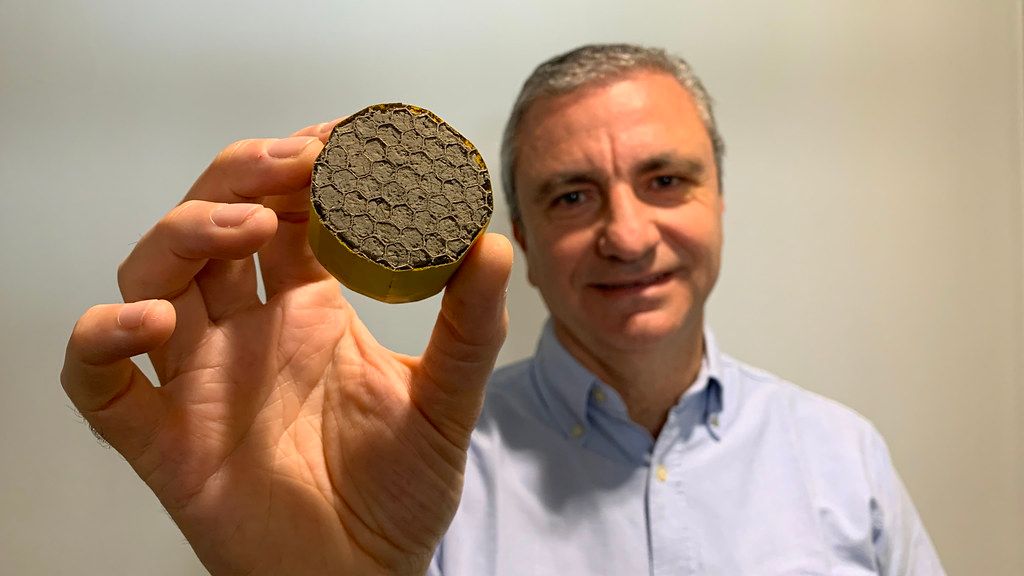
✈ The sound of airplanes – from thunder to the rumbling of a hairdryer
A new sound-insulating material can lower the noise level of an airplane engine by 80 percent, and at the same time reduce the weight of the insulating material.
Share this story!
A material that resemble meringue can reduce the noise from an aircraft engine by 80 percent. This would reduce the thundering noise of an aircraft engine to something more like the sound of a hair dryer.
Researchers at the University of Bath in the UK have developed the material, which is technically a graphene oxide-polyvinyl alcohol airgel. In addition to the material being an excellent muffler, it is also very light. It weighs only 2.1 kilograms per cubic meter. According to the researchers, this means that it is the lightest sound insulation material ever produced.
In 18 months from now, the researchers expect that the material can be used as insulation around aircraft engines. If everything goes as planned, this means that the noise pollution around airports can be decreased significantly. This would improve life and work quality for a lot of people.
The fact that the new material is both very sound-insulating and light is due to the ingredients chosen by the researchers and the manufacturing process itself.

"We managed to produce such an extremely low density by using a liquid combination of graphene oxide and a polymer, which are formed with whipped air bubbles and freeze-casted. On a very basic level, the technique can be compared with whipping egg whites to create meringues - it’s solid but contains a lot of air, so there is no weight or efficiency penalty to achieve big improvements in comfort and noise." says Michele Meo, professor at the University of Bath and one of the researchers behind the new material, in a press release.
Not only the aviation industry suffers from high noise levels. The researchers are therefore also investigating whether the new material can be used in other areas too.
"This is clearly a very exciting material that could be applied in a number of ways – initially in aerospace but potentially in many other fields such as automotive and marine transport, as well as in building and construction," says Michele Meo.
Read the full study here.
By becoming a premium supporter, you help in the creation and sharing of fact-based optimistic news all over the world.


